TABLE OF CONTENTS
What are the best CPU Cooler brands, what makes them unique, and what actually reflects a good CPU cooler brand, anyway?
I’ll be covering each of these questions in detail throughout this article.
I’ve also narrowed down my selection of CPU cooler brands to nine top picks that I feel generally comfortable recommending to anyone—feel free to use the table of contents if you want to jump straight to that!
For now, let’s start with what actually makes a CPU cooler brand good and, therefore, worth recommending.
What Makes a CPU Cooler Brand “Good”?
Competitive Pricing
The importance of competitive pricing is one of the biggest things setting apart the CPU Cooler market from other PC hardware and peripheral markets.
The market for things like GPUs and CPUs tends to scale much higher in price but is also so expensive to develop and produce that only a few companies (AMD, Nvidia, Intel) can reasonably do so.
It’s different with CPU coolers, since they are so commonplace and reasonably cheap to produce, products often compete within price margins of tens to twenties of dollars and specific form factor niches.
This results in a surprisingly diverse market for CPU coolers in a variety of form factors, including particularly large or small air coolers and AIO liquid coolers.
A great CPU Cooler Brand, therefore, should be able to offer its products at a competitive price. The Brand has to be big enough to bulk manufacture enough Coolers to both be able to actually serve the market needs without going out of stock and consequently be able to offer their coolers at reasonable pricing due to bulk manufacturing.
The above rules out any niche cooler manufacturers as they could not cope with demand.
Warranty and Returns
Another thing to look out for when evaluating CPU cooler brands is their warranty and return policy.
In an ideal world, you would never have to make use of these, but you never know when something might go wrong with your hardware, and you find yourself in need of making an exchange or getting a refund.
Brands or specific products with multi-year warranties are ideal since a brand has no real incentive to make sure a product lasts beyond that period. This is especially important to watch out for with AIO CPU coolers, which can leak if allowed to degrade.
In the end, CPU Coolers are responsible for your CPU’s health, performance/boost potential, and longevity. A great CPU Brand has confidence in their products and will therefore offer great warranties.
Unique Features
Last but not least, unique features being offered or presented by a CPU cooler brand can also help set them apart from the competition.
As a few specific examples:
Corsair’s RGB coolers can be directly implemented with their other RGB hardware and peripherals, while be Quiet!’s CPU coolers are purposely built for quieter operation, like the rest of their products.
Or take Noctua: Noctua’s Coolers have a unique color style, which might need some getting used to for some, but is clearly recognizable and often a statement for PC Builders, as Noctua is known for being a premium Brand.
What Makes a CPU Cooler “Good”?
Build Compatibility
Before anything else, you’ll want to make sure that your CPU cooler has full compatibility with your build.
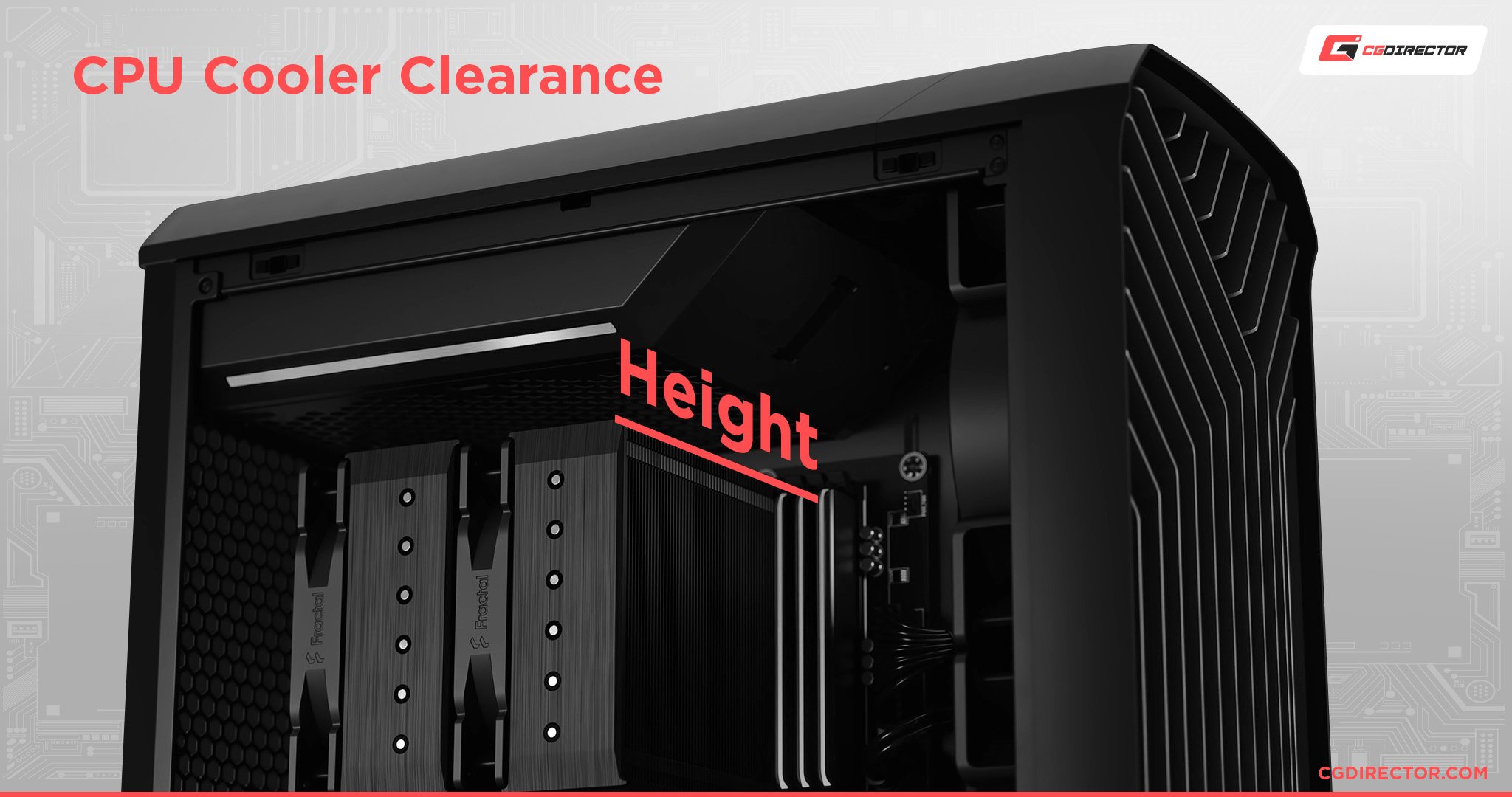
Larger, bulkier air coolers may provide better cooling performance but won’t fit inside many smaller builds due to clearance issues with the case, the motherboard, tall RAM Modules, or even a bulky GPU on the first PCIe Slot. These are fundamental compatibility issues you want to avoid.
Smaller issues like a low-profile air cooler in a chassis with room for a large air cooler or AIO expansion may not prevent compatibility. However, they should still be avoided if possible to maximize the performance of all the hardware involved.
Try to keep your PC case and other components in mind when choosing the best CPU cooler for your needs.
Cooling Performance
Beyond compatibility with your PC build, which largely boils down to size, actual cooling performance is arguably the most important thing to keep in mind.
There is some relation between size and performance (particularly for Air Coolers and AIOs with Multi-Fan Radiators), but this never tells the full story on its own.
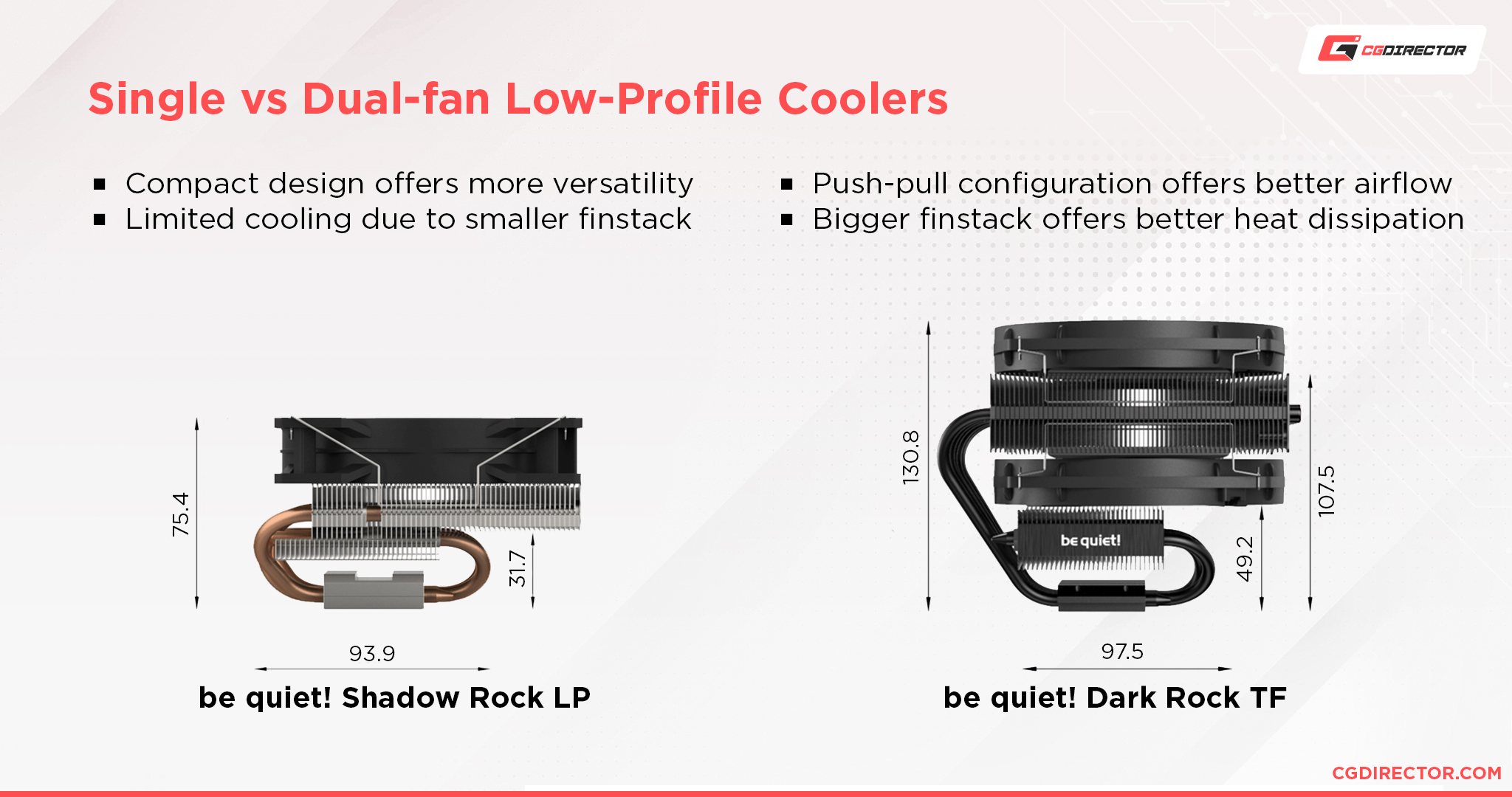
Unfortunately, you can’t really gauge cooling performance with a passing glance—you’ll need to consult benchmarks from trusted external sources.
Currently, GamersNexus on YouTube seems to be doing the most thorough benchmarking of new CPU cooler releases, though sites like Anandtech can provide some fairly good benchmarks and reviews, too.
Beware of benchmarks that only target specific workloads, though. If you’re into 3D rendering 24/7, a long list of gaming benchmarks won’t tell you all that much about how a given cooler will perform under sustained loads.
Generally, sustained loads (like CPU rendering, CPU encoding, anything that takes a longer time with 100% CPU utilization) are better cooled by an AIO, while burst workloads (active work inside your viewport, gaming) are usually better cooler by Air Coolers as they react faster to temperature spikes through fast heat-pipe transfer.
Acoustics
Another primary concern of CPU coolers is found in their acoustics, or how loud they end up being under operation and load.
Especially if you’re building a PC thoughtfully enough to consider noise levels elsewhere in the build, your CPU cooler and its fan(s) can’t be forgotten.
With liquid cooling AIOs, acoustics in general are improved, but fans are still very much in use, in addition to pump noise. Instead of being used to cool the CPU directly, though, fans in a liquid cooling setup are instead attached to a radiator, which cools the liquid that cools the CPU.
This means you can have larger fans running more slowly and quietly for a high level of performance compared to the smaller single fan you would be restricted to by most air coolers.
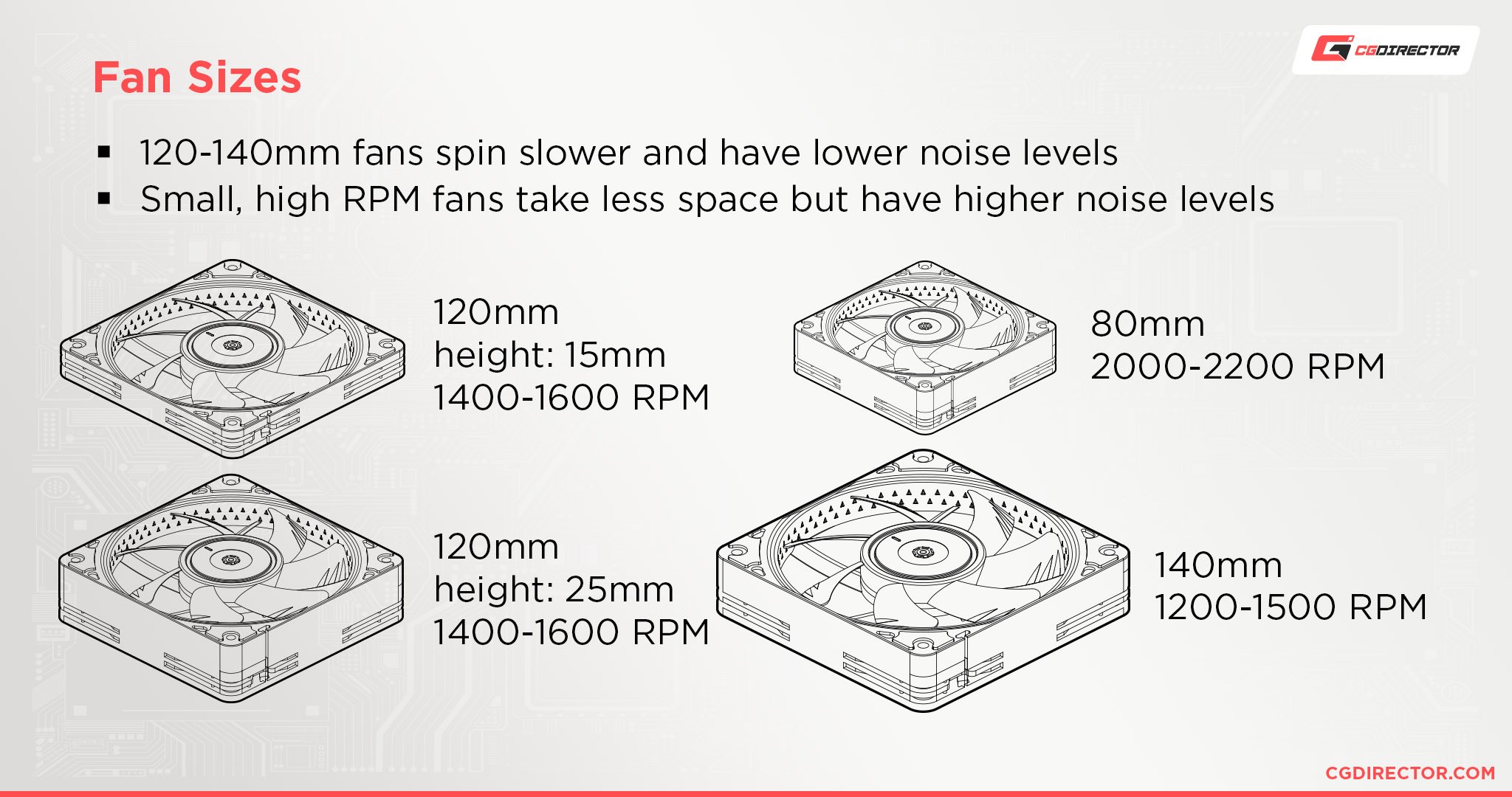
With air coolers, noise levels tend to trend higher overall, but the factors impacting them may be less obvious.
Generally speaking, though, fan size and RPM will correspond directly to fan noise, with larger fans able to push more air at lower RPMs than small fans. This means that your smaller air coolers can often be louder than your larger air coolers, but this isn’t necessarily a hard rule.
Price To Performance Ratio
Last but not least, let’s talk about pricing one more time.
In an earlier section, I discussed how fiercely competitive the CPU cooler market is in pretty much all of its niches. Take a CPU cooler form factor and a budget, and there are likely three or more options actively competing for the top spot in that range.
While a brand having generally-good pricing for its offerings is great, that may not necessarily mean they’re offering the best pricing in its range.
Always double-check benchmarks and reviews for competing CPU coolers in your budget so you can determine the real best option for your needs.
While I’m about to dive into a variety of CPU cooler brands I generally trust and recommend, at the end of the day, you’ll be buying the cooler, not the company—so always look at the competition!
What Are The Best CPU Cooler Brands and What Makes Them Unique?
Cooler Master
- Air or Liquid Coolers?: Both
- Market Niches: Budget Air Coolers, High-End Air Coolers, AIO Liquid Coolers, RGB CPU Coolers
- Established Since: 1992
Cooler Master, as their name might imply, is one of the most well-known names in the CPU cooler space.
The Cooler Master Hyper 212 Evo epitomized this, dominating the air cooler market in the sub-$40 price range for nearly a full decade.
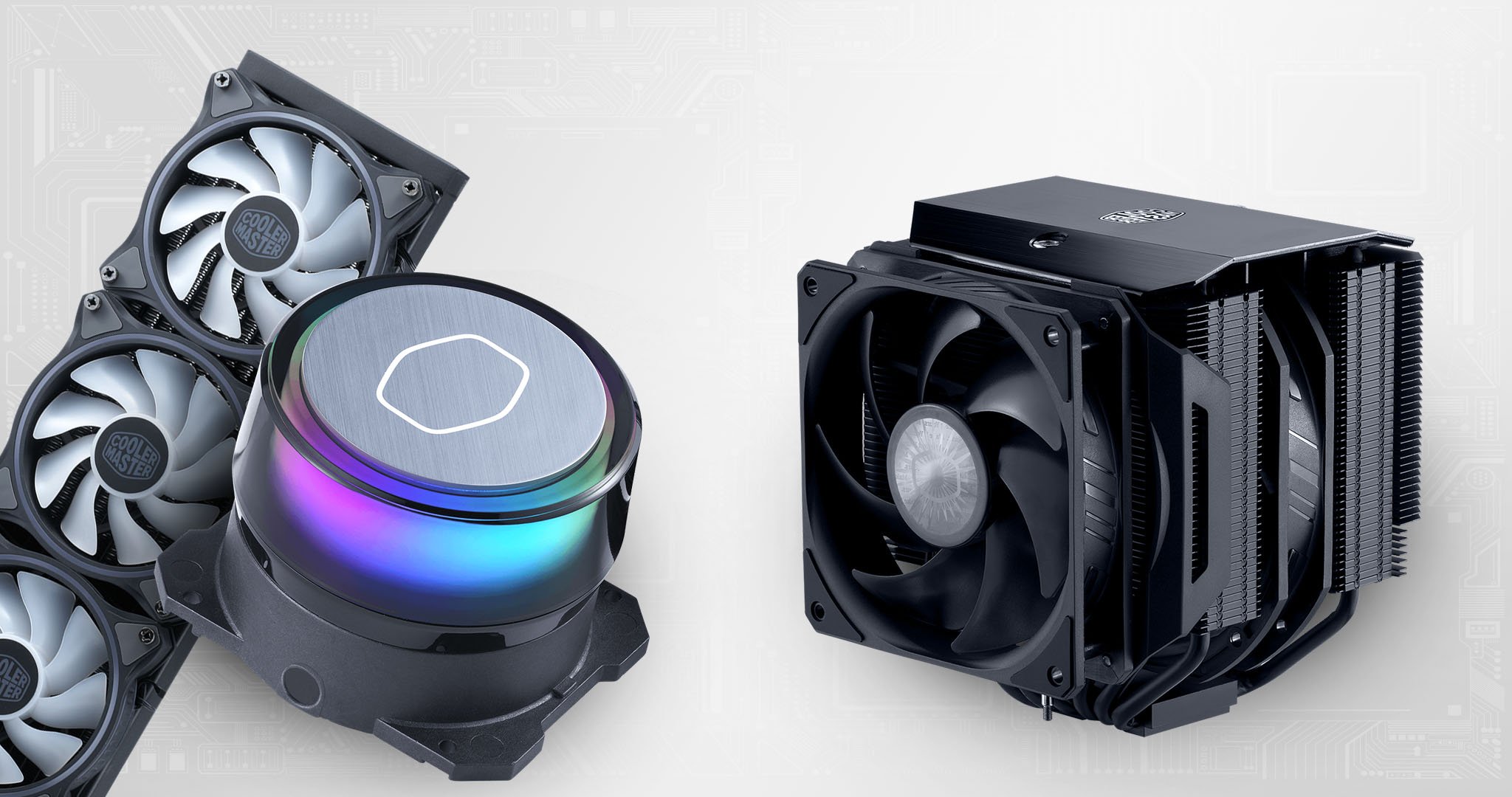
The 212 Evo and some variations are still sold on the market today, but the competition has long since heated up, making them no longer the best option.
However, it’s hard to understate the achievement made by Cooler Master with the Hyper 212 Evo, and I wouldn’t be surprised if it’s the single most-used aftermarket CPU cooler ever made.
The Hyper 212 Evo was originally released in 2011 and remained at the top of recommended budget CPU cooler lists for nearly the entire decade afterward. Newer variations of the Hyper 212 still sell fairly well, too.
Aside from the Hyper 212 Evo, which shows Cooler Master’s proficiency in the budget air cooler market, Cooler Master also likes to compete across the wider cooling market.
These days they aren’t really the best in any particular niche, but their pricing is consistently competitive and they’ve managed to keep a good reputation in the enthusiast community.
Noctua
- Air or Liquid Coolers?: Air Coolers Only
- Market Niches: Mid-Range Air Coolers, Quiet CPU Coolers
- Established Since: 2005
Noctua is another prominent CPU cooler company but focuses more on mid-range pricing and cooling options than on being the best budget cooler in a given range.
Noctua also used to be uniquely known for their unique brown-colored cooling fans, though these days they also come in other colors.
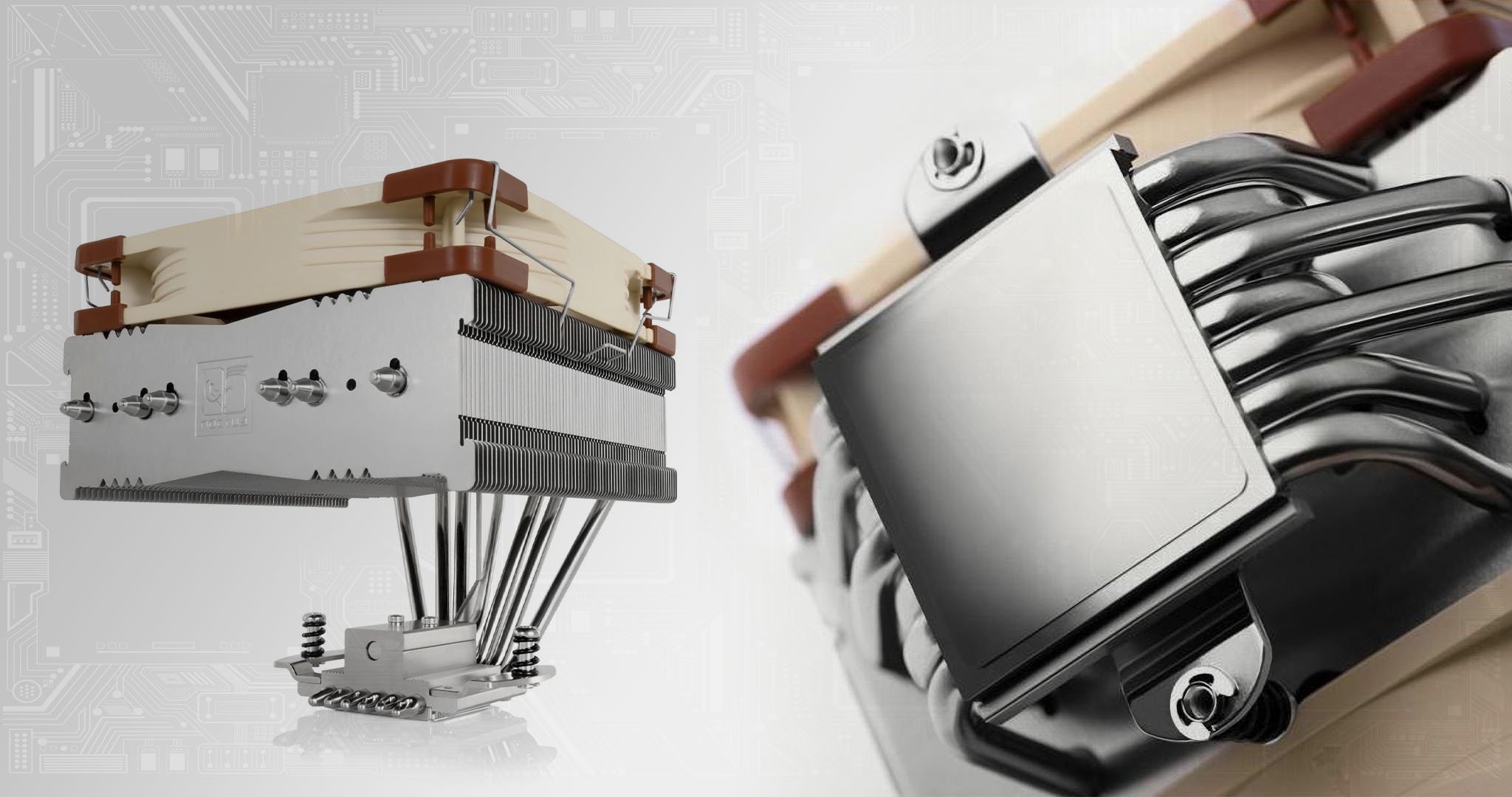
In the market, Noctua makes a variety of air CPU coolers for various form factors, packaged with their own decently-quiet, high-performance fans.
Noctua will generally provide strong low-noise and low-temperature numbers in a given range, but may not always have the best pricing when it comes to price-to-performance ratio.
I consider them a fairly reliable brand, though, even if their pricing isn’t always the best.
EVGA
- Air or Liquid Coolers?: Liquid Coolers Only*
- Market Niches: AIO Liquid Coolers
- Established Since: 1999
EVGA is another major CPU cooler manufacturer, though they’re arguably better-known for their other products in the PC hardware space, especially their graphics cards.
EVGA is one of the leading graphics card brands, but are they also a leading CPU cooler brand? I’d say so, yes.
With CPU coolers, EVGA specializes in high-performance AIO liquid coolers. EVGA’s AIOs tend to perform extremely well at their price point, with standouts like the EVGA CLC series being particularly competitive with the best AIOs on the market (CLC 280 or CLC 360 recommended).
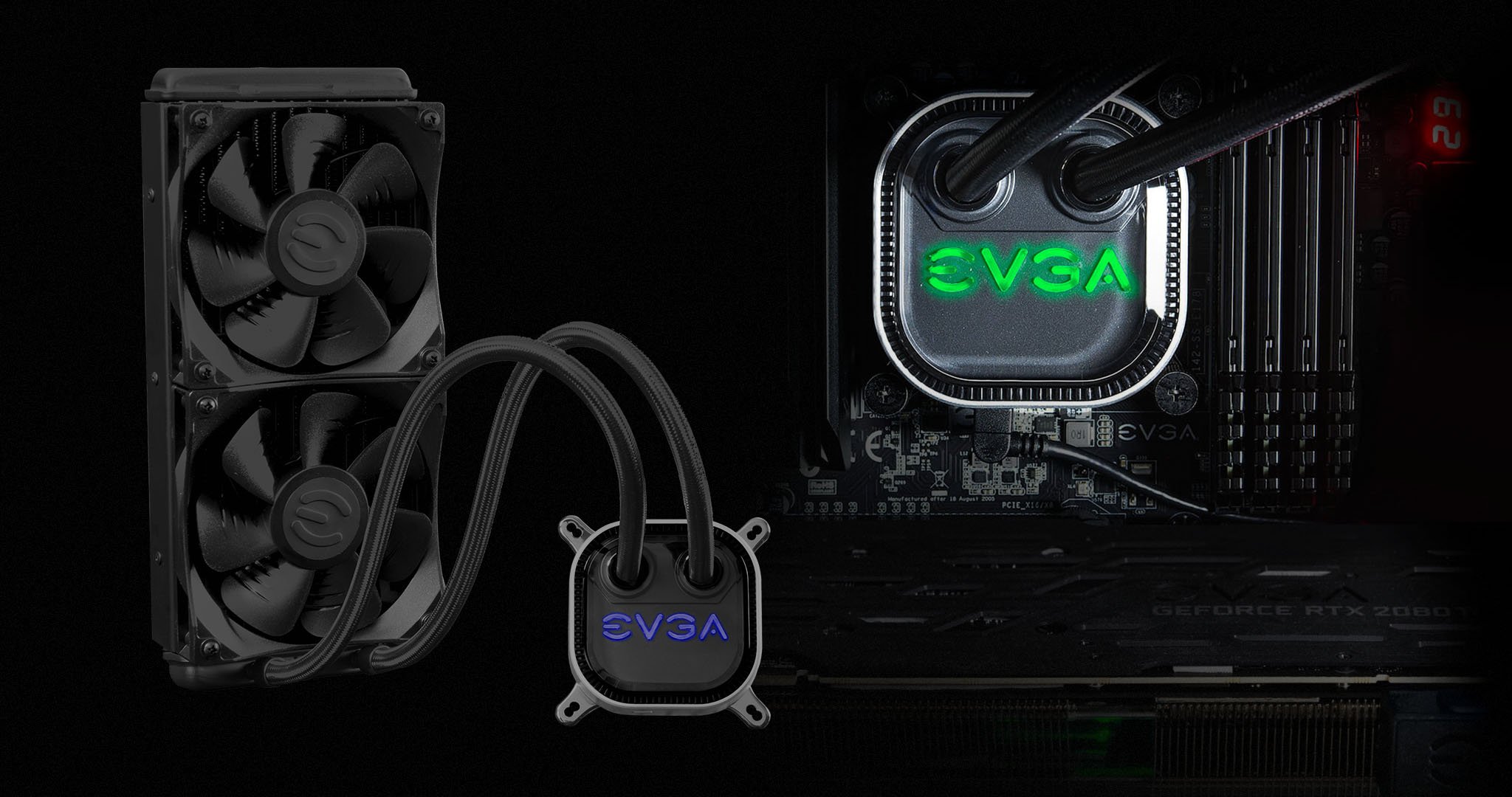
While you may be able to find better AIO options if you’re willing to do the research, EVGA generally makes fairly capable liquid coolers at a compelling price.
*Barring some incredibly rare, and not particularly competitive, forays into air cooling.
Deepcool
- Air or Liquid Coolers?: Both
- Market Niches: Budget To High-End Air Coolers, AIO Liquid Coolers, RGB CPU Coolers
- Established Since: 1996
Deepcool is a long-time manufacturer of CPU coolers and is fairly competitive in terms of price-to-performance in pretty much any given niche of air coolers.
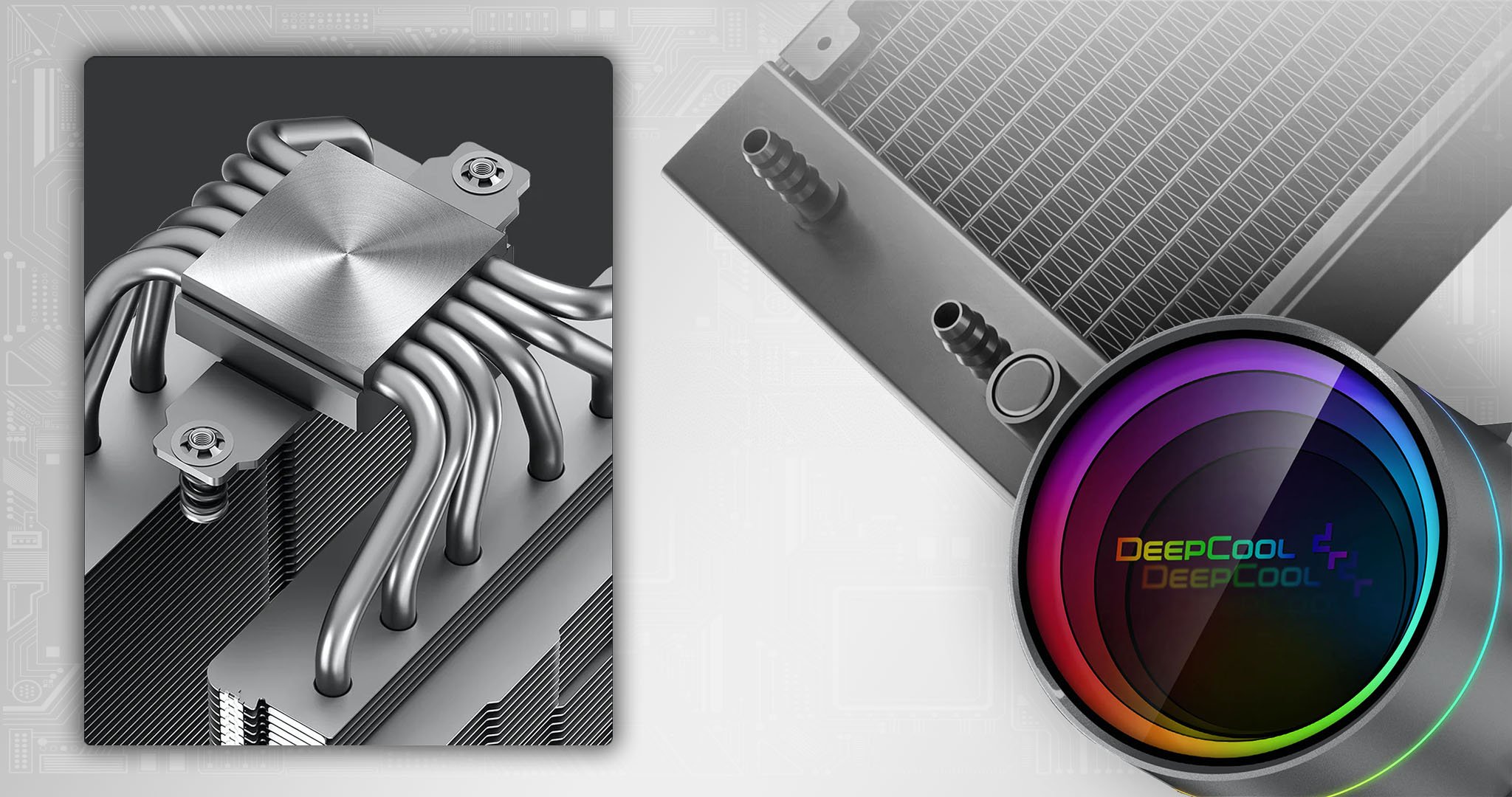
They are most competitive where there is the most competition, though, and that is generally in the budget-to-midrange air cooling space. You’ll definitely want to do some benchmark comparisons with competing options in the same price range, but Deepcool is consistently pretty good for the money.
Besides air cooling, Deepcool also makes pretty decent AIO liquid coolers.
However, those don’t seem to be particularly exceptional compared to competing AIOs. At least at the time of writing, most of Deepcool’s best showings have been found in budget air coolers.
EKWB
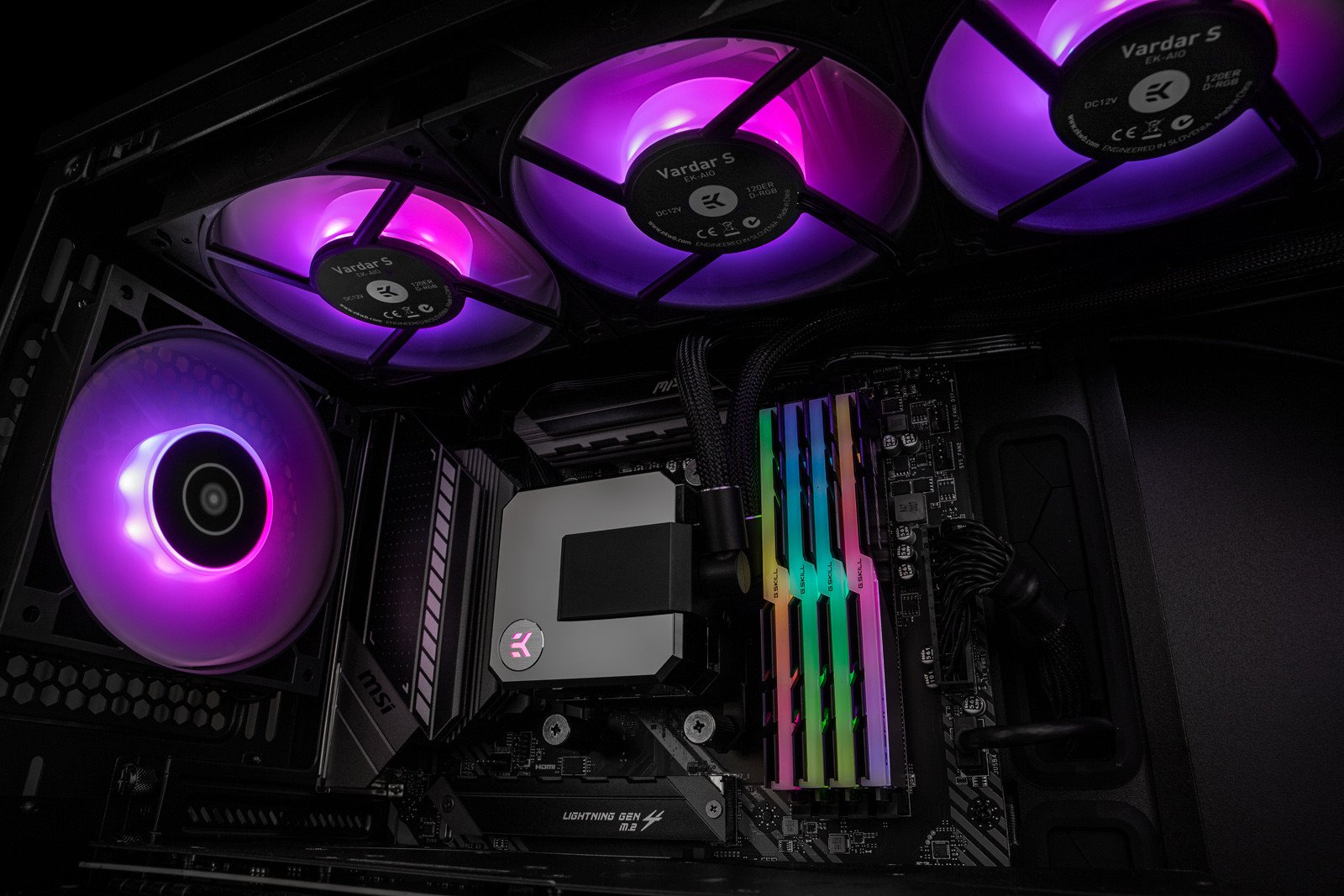
- Air or Liquid Coolers?: Liquid Coolers Only
- Market Niches: AIO Liquid Coolers
- Established Since: 2003
EKWB (alternatively known as EK Water Blocks) isn’t just an AIO liquid cooler manufacturer, but also a prominent provider of custom loop liquid cooling hardware.
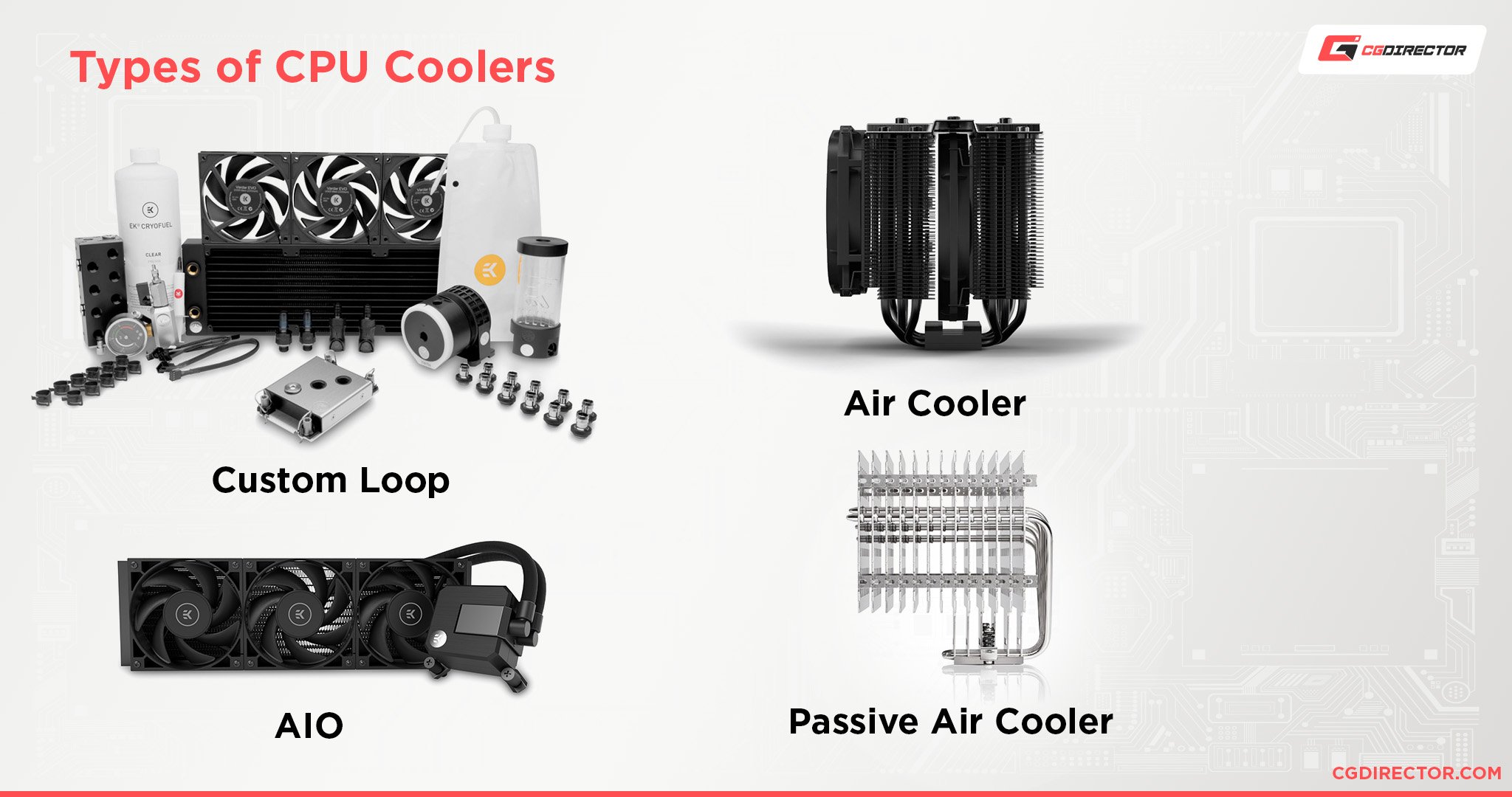
Custom loop liquid cooling doesn’t come in an all-in-one form factor like AIO liquid coolers or standard air coolers: instead, users have to add dedicated reservoirs, pumps, and custom tubing to push their coolant between the CPU and/or GPU and the radiator(s).
It’s a far more expensive and difficult path to take to high cooling performance, but it does provide a significant boost in both raw cooling power and noise level reduction.
Custom loops are a bit out of the scale of this article, but I’ve written more about them here if you’re interested.
So, EKWB is primarily known for its custom loops. How, then, are their AIOs?
Fairly good, it turns out.
Surprisingly—or perhaps not surprisingly, considering the fact the company has always specialized in liquid cooling—EKWB’s AIOs offer market-leading performance at what is usually a pretty good price. It’s definitely cheaper than trying to build one of their custom loops, anyway.
Arctic
- Air or Liquid Coolers?: Both
- Market Niches: Budget To High-End Air Coolers, AIO Liquid Coolers, RGB CPU Coolers
- Established Since: 2001
Arctic is a major CPU cooler manufacturer and competes fairly well in both air cooling and liquid cooling.
At the time of writing, their Arctic Freezer AIO series is easily among the best available options for high-performance AIO cooling at a competitive price.
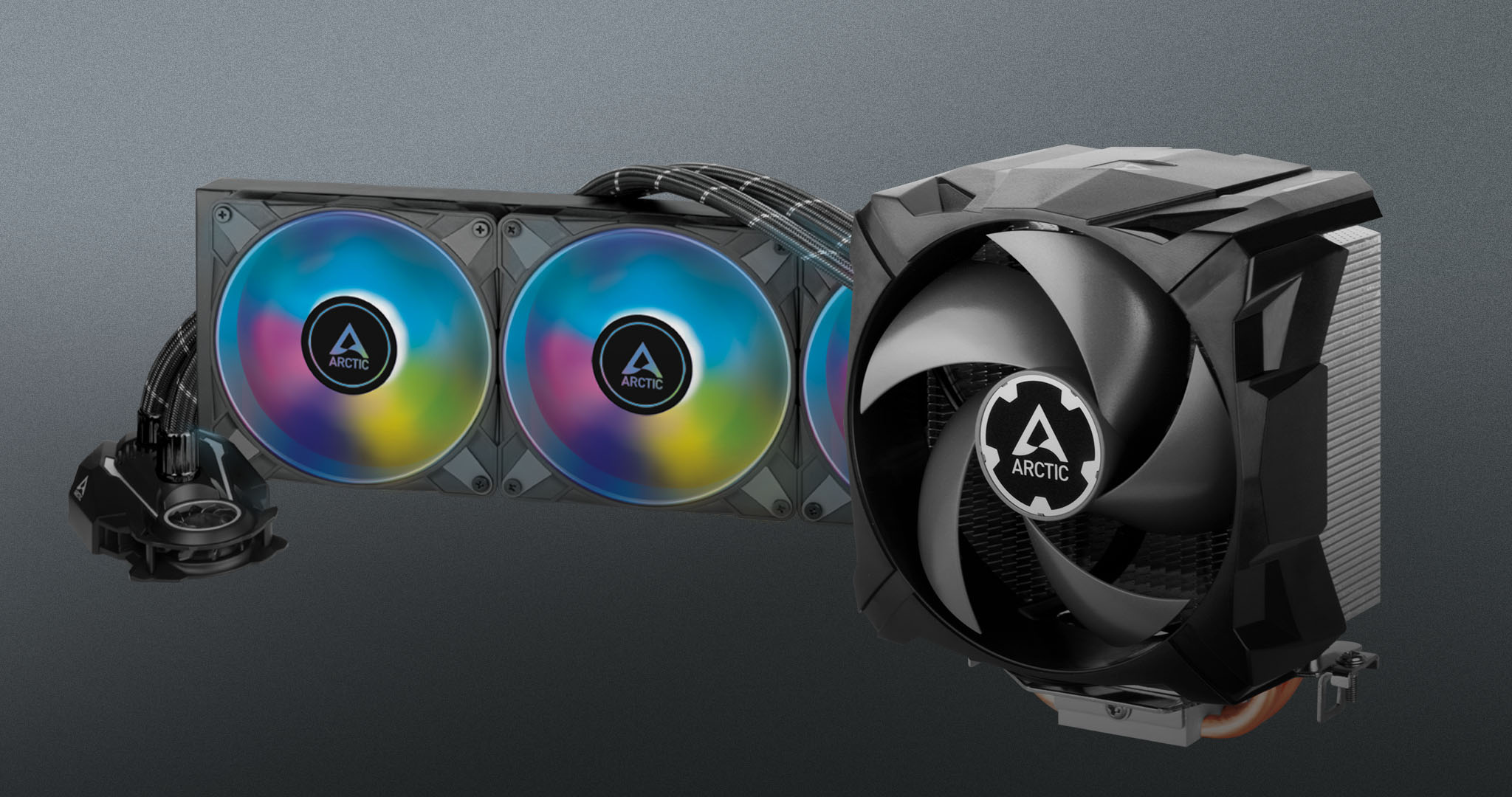
As competitive as Arctic are in high-end AIOs, they’re also fairly good at providing a wide variety of high-performance air coolers at reasonable prices.
Some of the cheapest air coolers you’ll find on Amazon will come straight from Arctic and should serve you well as long as you aren’t pushing your system too hard.
be Quiet!
- Air or Liquid Coolers?: Both
- Market Niches: Mid-Range Air Coolers, AIO Liquid Coolers, Quiet CPU Coolers
- Established Since: 2001
be Quiet! Is a PC hardware manufacturer with one distinct, obvious goal: to make the quietest PC hardware possible.
Besides cooling fans and cases, this also extends to CPU air coolers and AIO liquid coolers.
As their brand name shouts to the high heavens, the primary goal of a given be Quiet! cooler or cooling fan is to provide the best performance possible while still staying quiet.
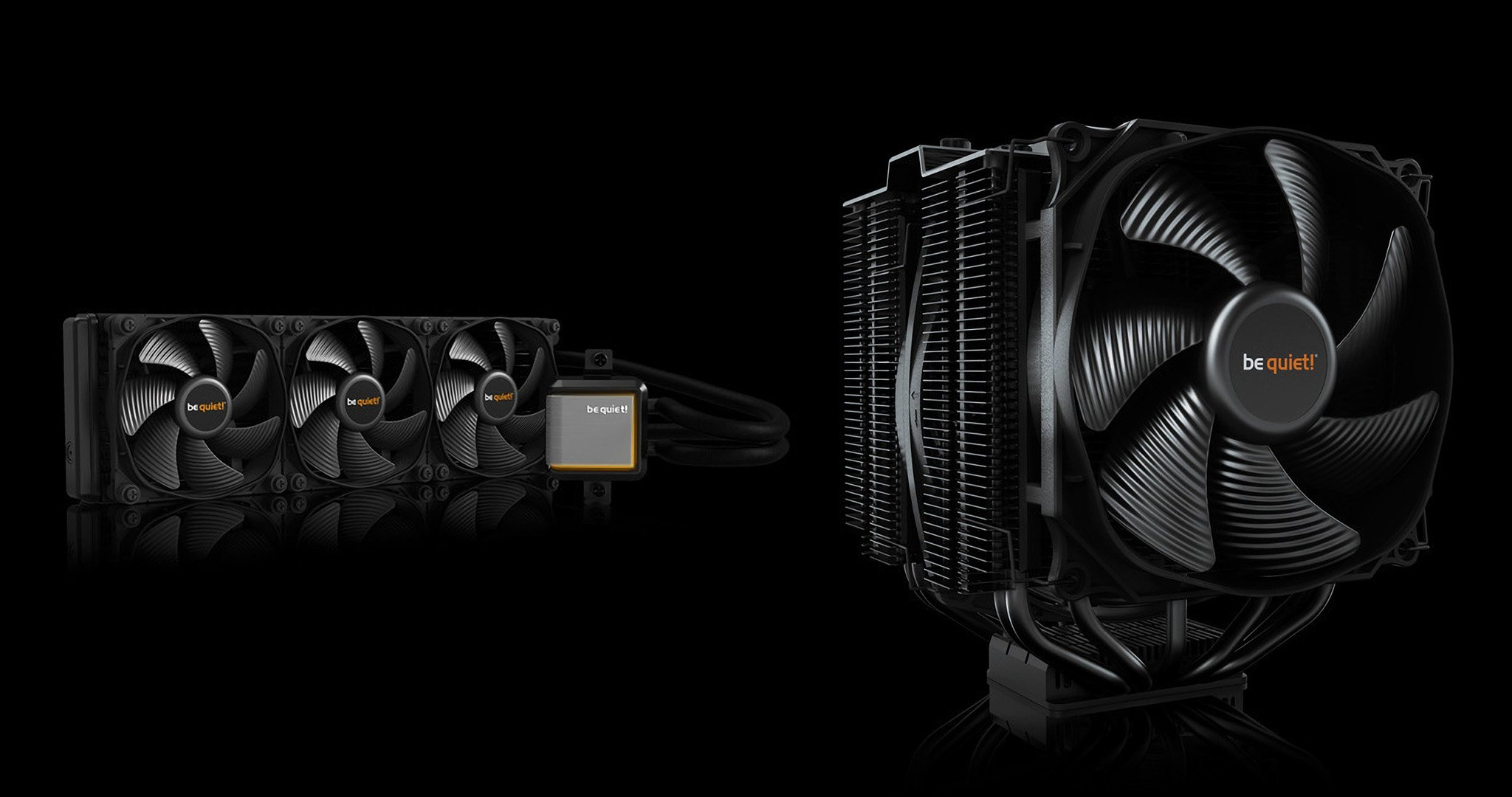
Even without a dedicated cooler, their case fans sold by themselves are fairly good at pushing air without making a lot of noise.
So if your primary or top concern with a CPU cooler upgrade is to cut down on the noise your PC is making, be Quiet! and their coolers should jump right to the top of your list.
Well, this brand and Noctua, anyway, both are competing to make quieter fans and coolers.
Corsair
- Air or Liquid Coolers?: Liquid Coolers Only*
- Market Niches: AIO Liquid Coolers, RGB CPU Coolers
- Established Since: 1994
Corsair is a PC hardware manufacturer known best for its power supplies, gaming peripherals, and very heavy fixation on RGB lighting.
Corsair is generally-known to make high-quality products, but how do they fare in CPU cooling?
Well, Corsair is primarily focused on making AIO liquid coolers. Unfortunately, their AIOs aren’t particularly exceptional when evaluated solely by their cooling performance.
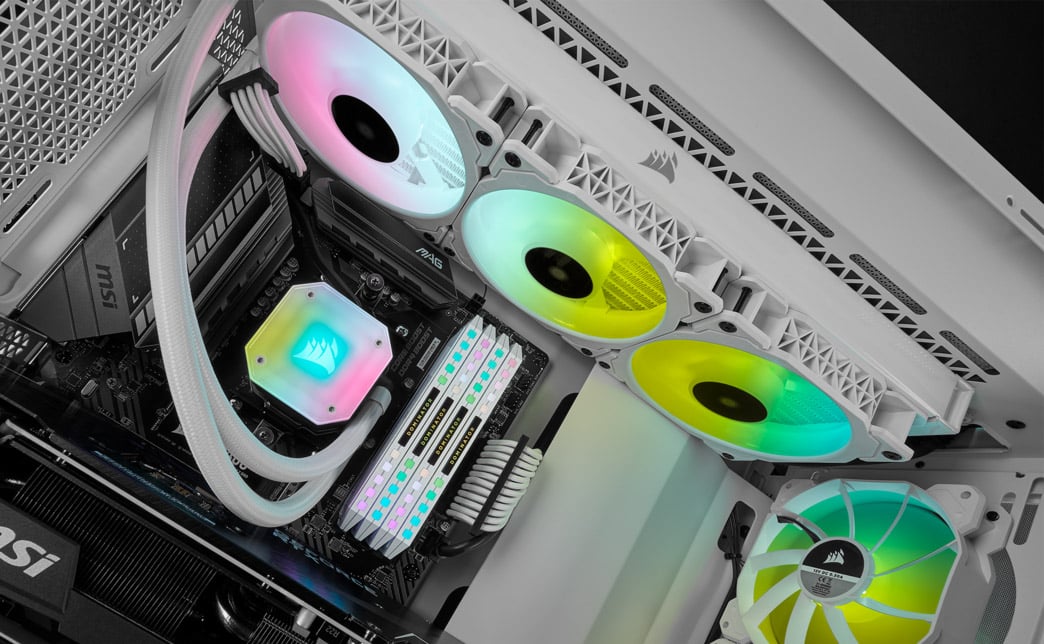
The main incentive to get a Corsair cooler over a competing cooler is that you already have other Corsair peripherals or components with which you can integrate its RGB effects.
Corsair does have legitimately impressive RGB software, but if RGB isn’t a primary focus for you, you’ll likely be better served by another brand.
*Technically Corsair has made a few air coolers too, but AIOs are a much bigger focus and Corsair isn’t really making competitive air coolers.
Scythe
- Air or Liquid Coolers?: Air Coolers
- Market Niches: Budget Air Coolers, High-End Air Coolers
- Established Since: 2002
Last but certainly not least, let’s talk about Scythe.
Scythe has been in the PC hardware space for a while, but has most recently been making waves in the cooling space by providing incredibly competitive air coolers at competitive prices, even against the likes of companies like Cooler Master and Deepcool.
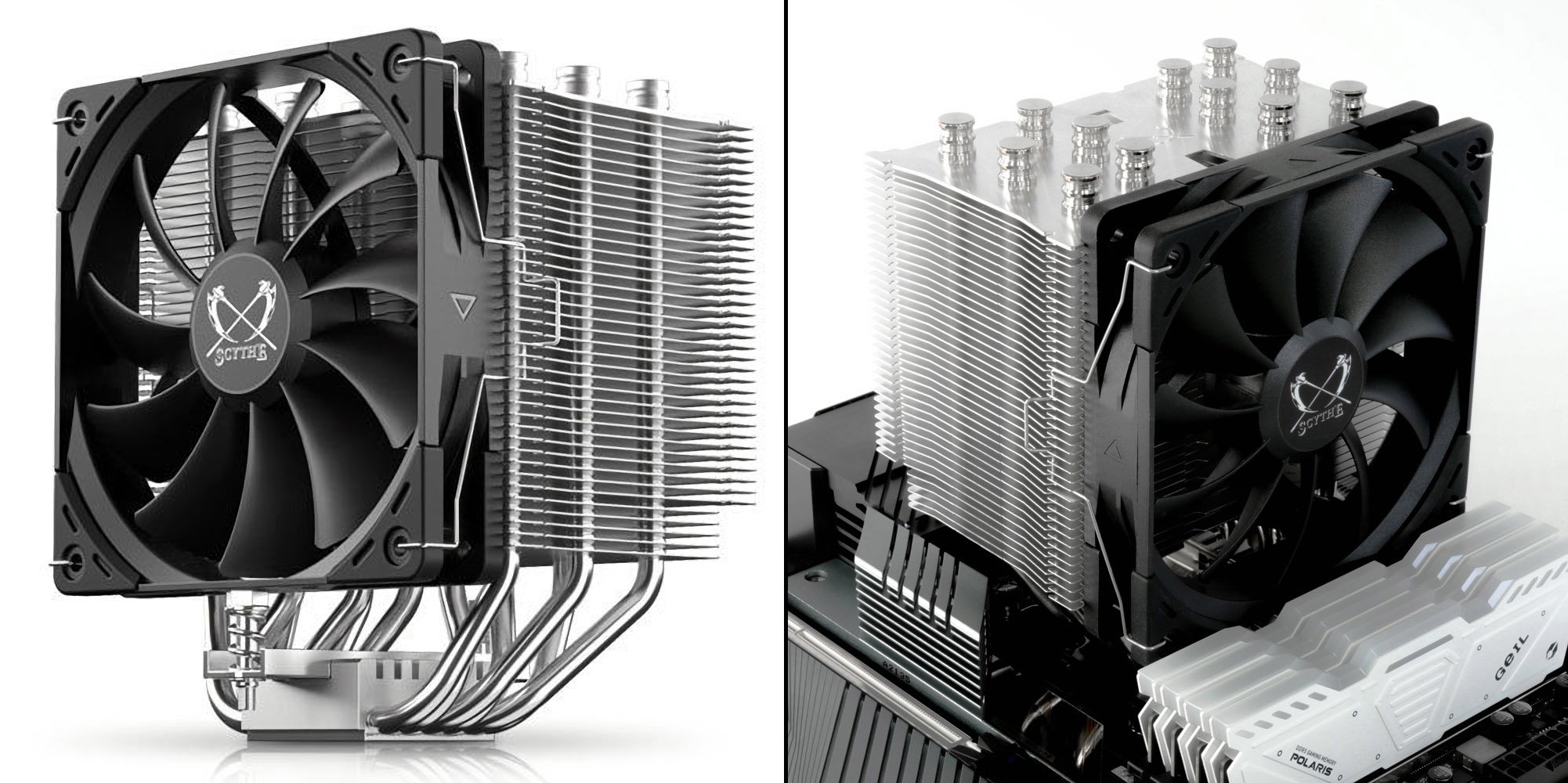
Their Scythe FUMA 2 release in 2021 earned the crown of “Best Overall CPU Cooler” from GamersNexus across a thorough set of benchmarks against dozens of competing coolers—not bad at all for a much lesser-known CPU cooler manufacturer!
CPU Cooler Brands Recommendation
The above sure is a long list of coolers that are known to be reliable, price competitive and that offer great performance. Here’s who I’d rank top three in my personal experience of building dozens of PCs:
- Noctua for their uncompromised Air Cooler performance
- beQuiet for quiet operation and high performance
- CoolerMaster for price competitive performance in lower budget-ranges
- Corsair for great AIOs
But that’s just me, how has your experience been with specific CPU Cooler brands?
FAQ
Do AMD and Intel Make CPU Coolers?
Yes, though these CPU coolers may not always be included with the AMD or Intel CPU you’re buying.
If you buy an AMD or Intel CPU and it comes with an included cooler, that’s called a “stock” cooler.
Stock coolers are intended to provide good-enough cooling performance for desktop CPUs, and generally speaking, Intel’s stock cooler designs are low-power and low-profile while AMD’s have better performance and come in a variety of (usually larger) sizes.
Even though AMD’s stock coolers are better than Intel’s, that isn’t really saying much. It’s certainly nice-to-have, but if you want to push stable high clocks/overclocks, lower your noise levels, or maximize your cooling potential, a stock cooler isn’t going to do the job.
Aftermarket Air Coolers and AIO Liquid Coolers are better than AMD and Intel stock coolers across the board, and high-end CPUs may encourage you to bring your own cooler by foregoing stock cooling entirely.
If you’re using a budget or mid-range CPU without overclocking capacity, using an included stock cooler should be fine.
But if you’re overclocking your CPU or you want to further reduce noise or temperatures, an aftermarket CPU cooler from a reputable brand is one of the first things you should consider!
Is Liquid Cooling Better Than Air Cooling?
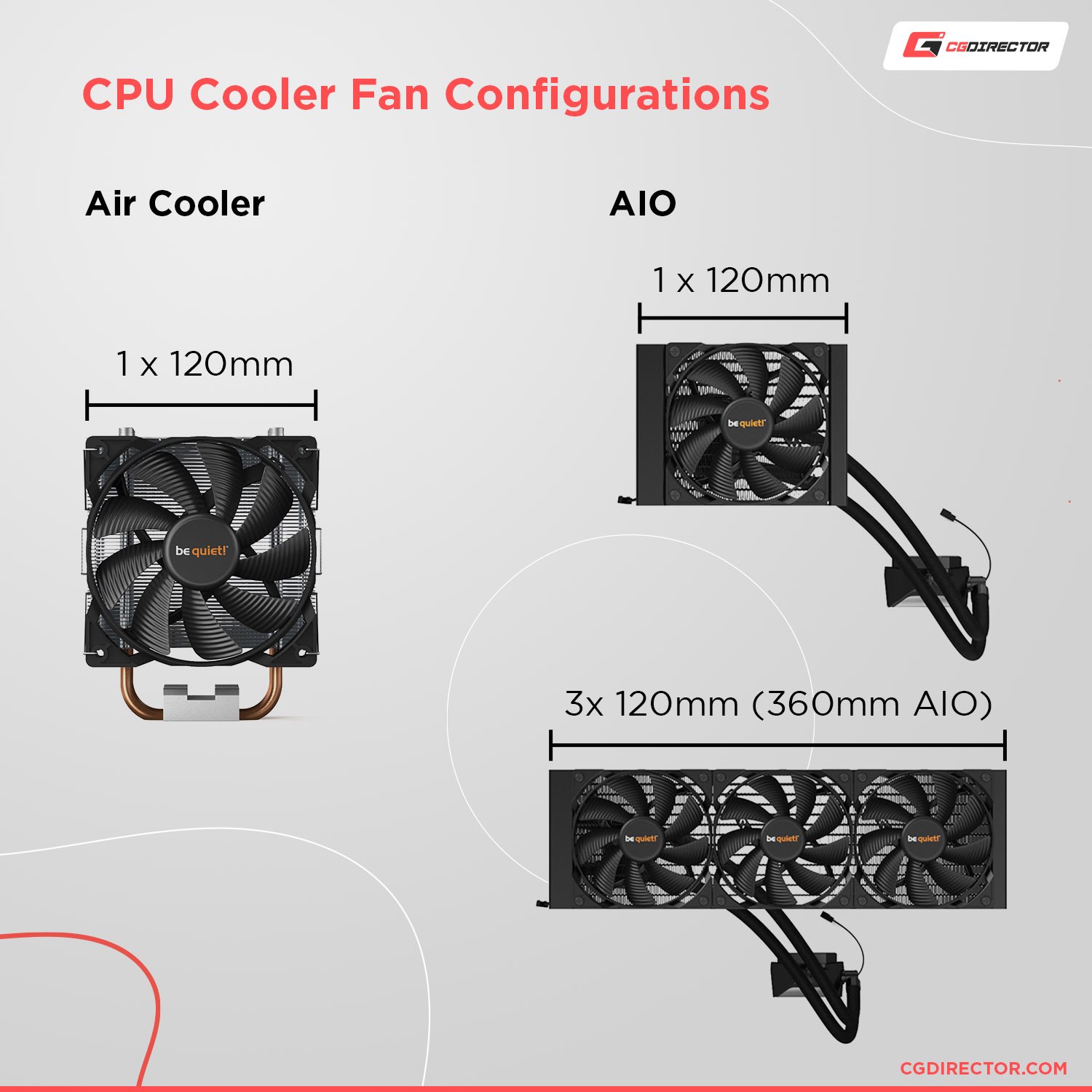
In some ways, yes, but like many things in the PC space, the answer isn’t quite that clear-cut.
In general, mid-to-high-end air coolers in today’s market are able to push low and sustainable enough temperatures for high-performance CPU overclocking.
Many of these air coolers can even outperform smaller (ie, 120 mm) AIOs, which keeps air coolers relevant for high-performance PC builds.
Now, once you start spending hundreds of dollars on your CPU cooling, you will begin to see liquid cooling as a straight improvement over air cooling.
As long as your chassis has room for larger radiators (240 mm, 280 mm, and larger), you can get liquid cooling AIOs that blow the noise and temperature levels of air coolers out of the water. (No pun intended.)
Alex has written a more detailed guide on the Air vs AIO debate if you’re interested in reading more.
But for now, I’d just like to leave you with the overall impression that both forms of CPU cooling are equally valid, and either can be great for a high-performance PC build.
Conclusion
And that’s it, at least for now!
I hope this article gave you a solid idea as to what the leading CPU cooler brands are, and which you should consider buying from to suit your own needs.
I’ve personally had good experiences with coolers from Noctua, beQuiet!, Corsair and Cooler Master, making them an easy recommendation for anyone building a PC today.
But the CPU cooler market is a fairly competitive one, and you should definitely be considering which cooler to slap onto your CPU with more information than just a brand name! This is more of a starting point than a be-all, end-all CPU cooler buying resource.
Over to You
Leave a comment below and let me know: did this article help point you in the right direction?
Alternatively, are you currently considering a CPU cooler purchase and want input from me or another member of the CGDirector Team? Leave a comment or head to our Forums, where I, a fellow team member, or even a community member will be happy to help!
Until then or until next time, have a good one! And don’t forget: The Cooler Master Hyper 212 Evo may have strong competition these days, but for nearly a decade it was the uncontested Greatest Of All Time. All Time!
![The Best CPU Cooler Brands [And what to beware of] The Best CPU Cooler Brands [And what to beware of]](https://www.cgdirector.com/wp-content/uploads/media/2022/09/The-best-CPU-Cooler-Brands-And-which-to-avoid-Twitter-1200x675.jpg)
![How to Get a CPU Cooler off of a CPU [Un-stick Glued-On Cooler] How to Get a CPU Cooler off of a CPU [Un-stick Glued-On Cooler]](https://www.cgdirector.com/wp-content/uploads/media/2024/03/How-to-get-CPU-Cooler-off-CPU-Twitter-copy-594x335.jpg)
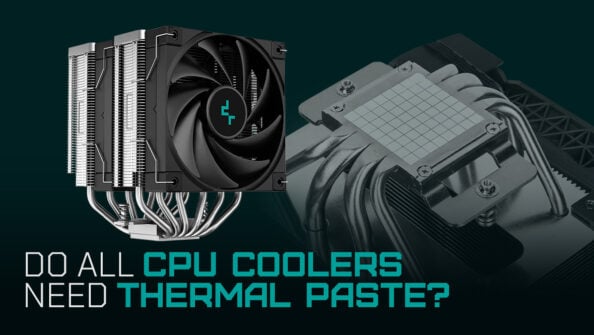
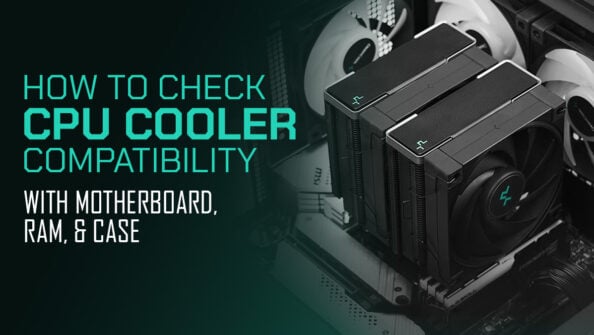
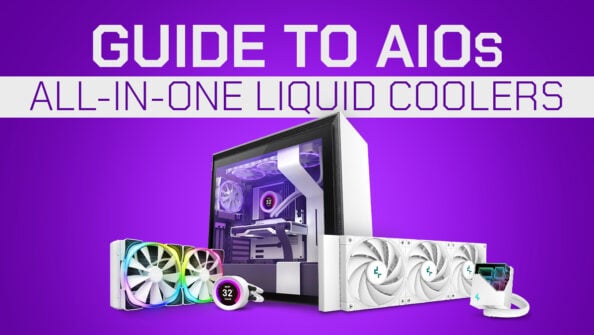

0 Comments